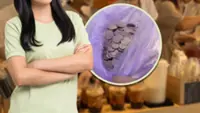
Shanghai Fosun Pharmaceutical Group, the exclusive China distributor of German firm BioNTech’s mRNA Covid-19 vaccine, said it has received more than 10,000 enquiries through its online booking service from people wanting to travel from mainland China to Hong Kong to receive the Omicron-focused shot.
Long queues of mainland Chinese nationals looking to receive the mRNA vaccine have been seen outside Hong Kong clinics this week. The border between the city and mainland China was opened at the weekend, and many travellers have been keen to receive the vaccine, which has not been available to citizens in mainland China where the government recently ended its zero-Covid approach.
Save 30% for ads-free and full access now!








































